Tour de France 2018 route revealed
21 stages include cobbles, dirt roads, two time trials and three big mountain finishes
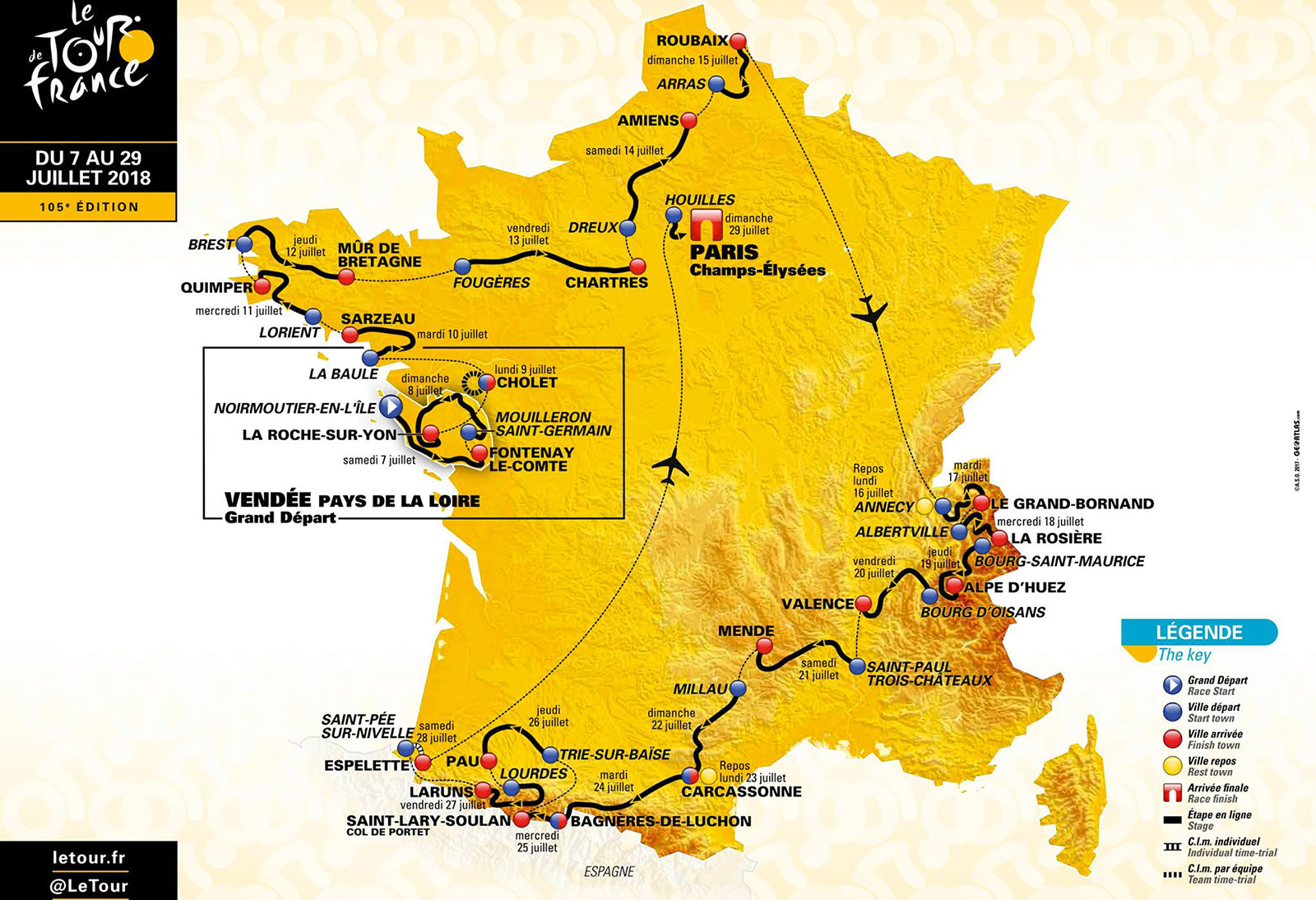
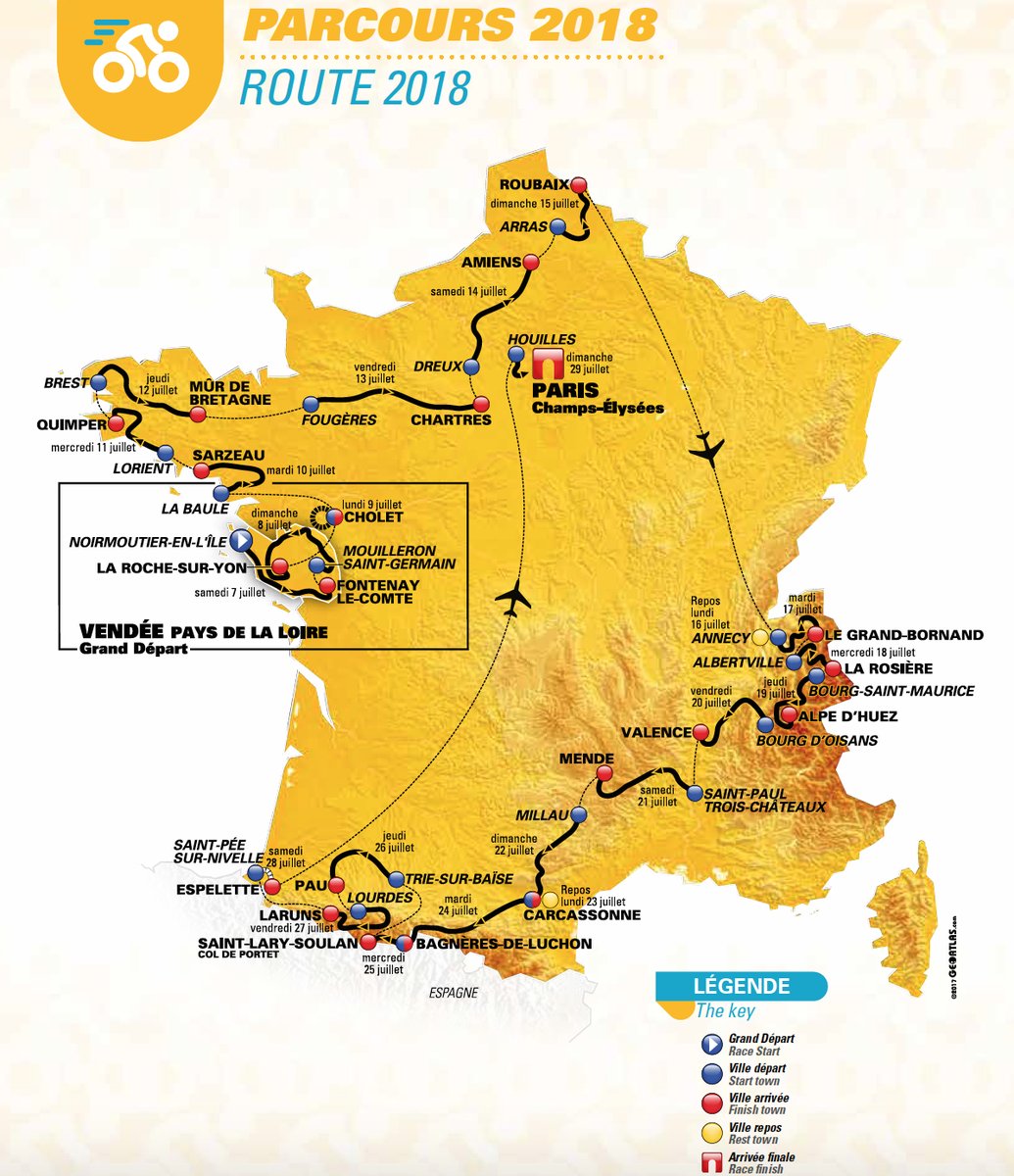
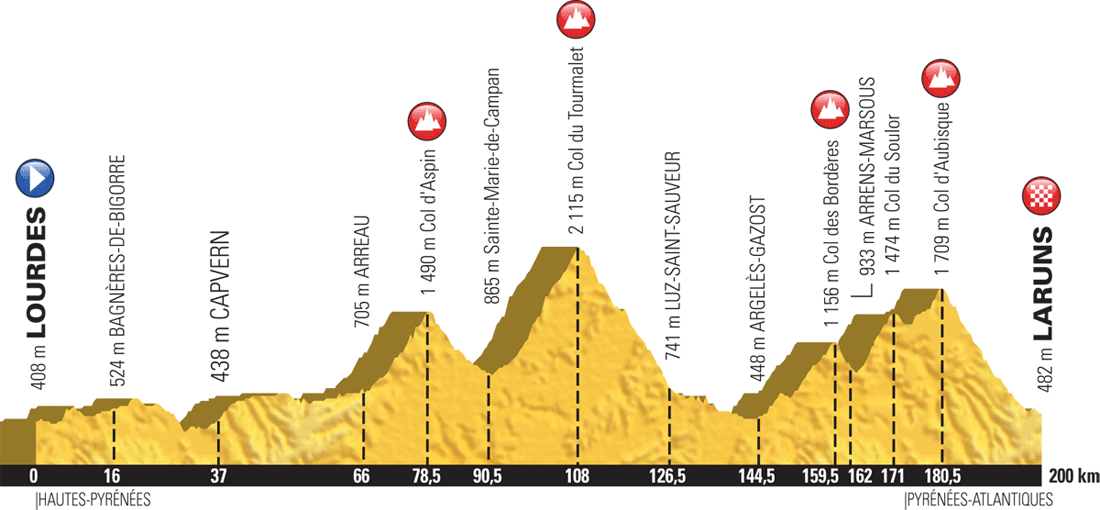
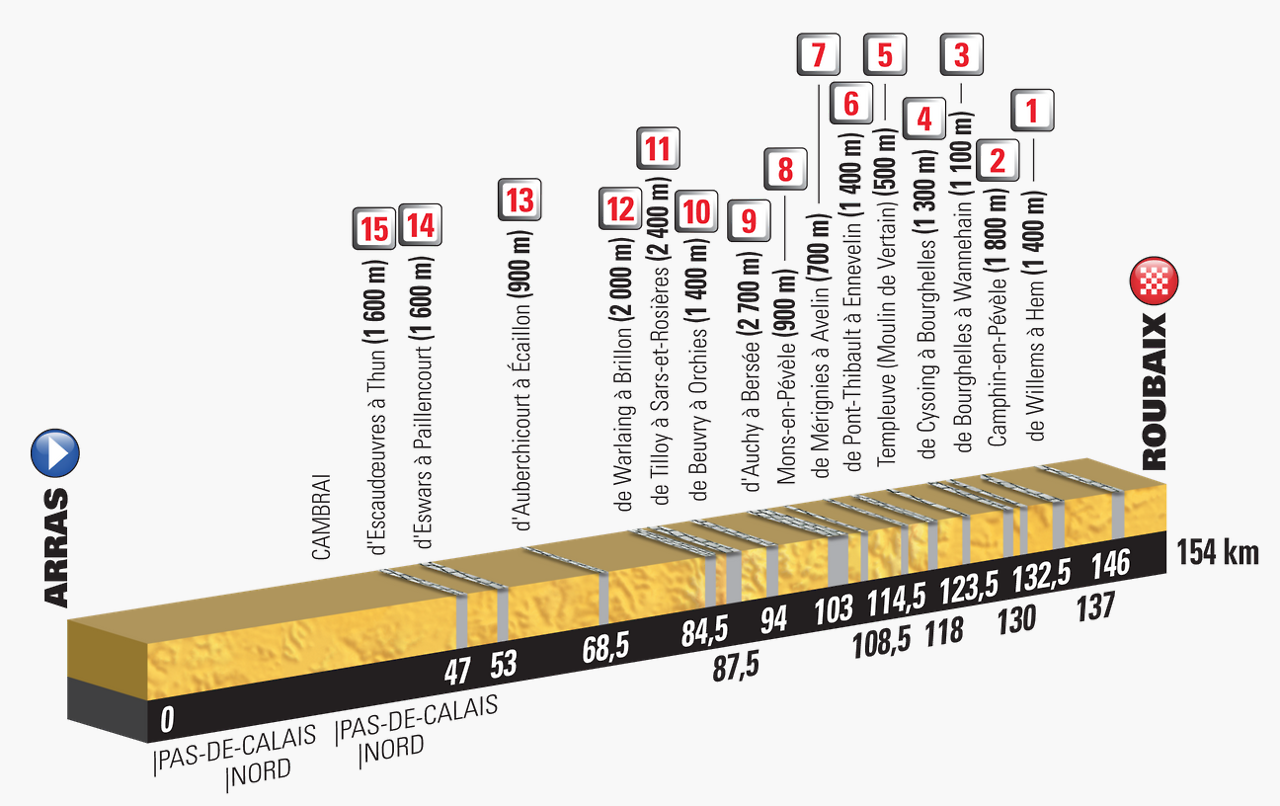
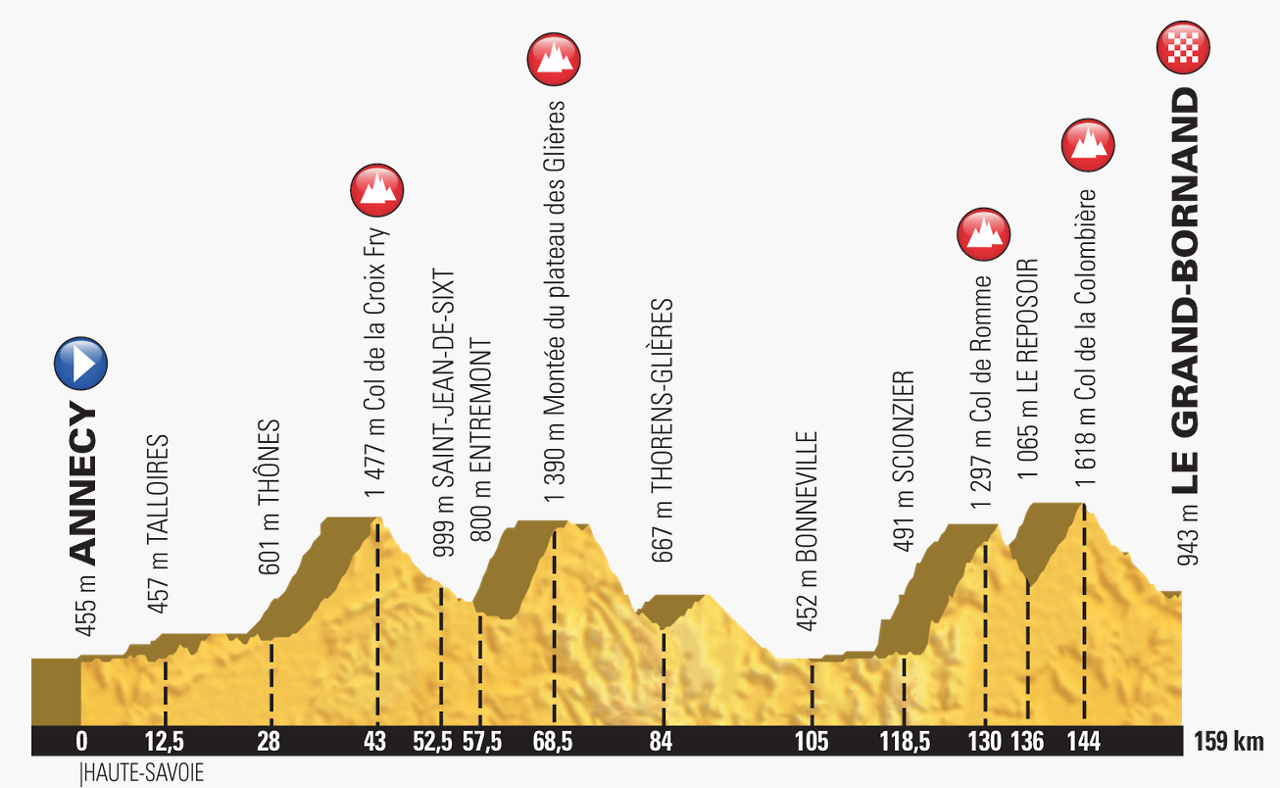
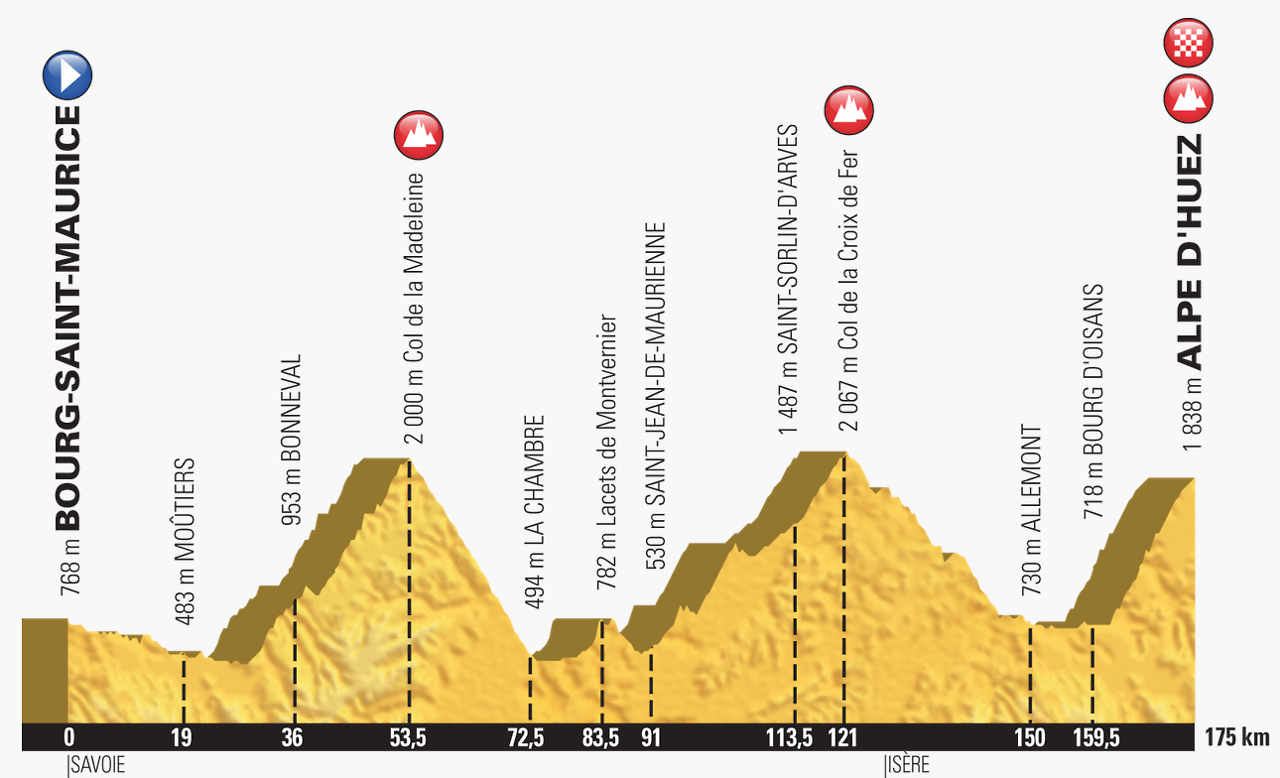
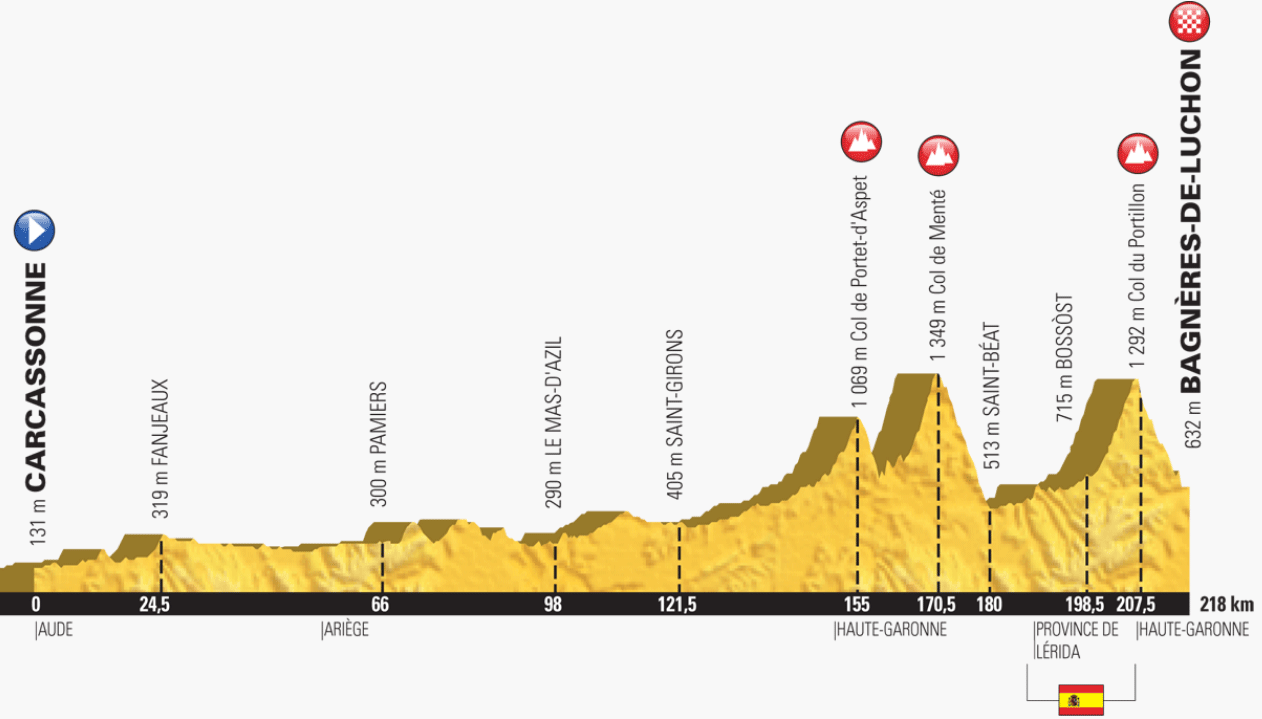
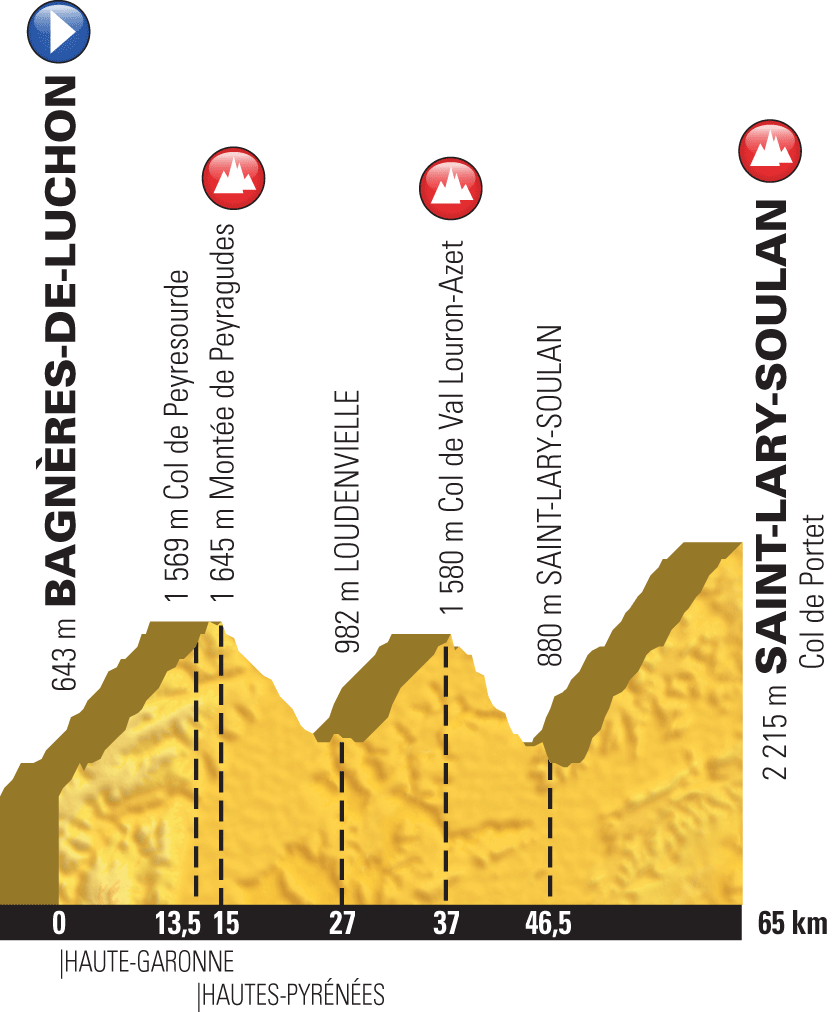
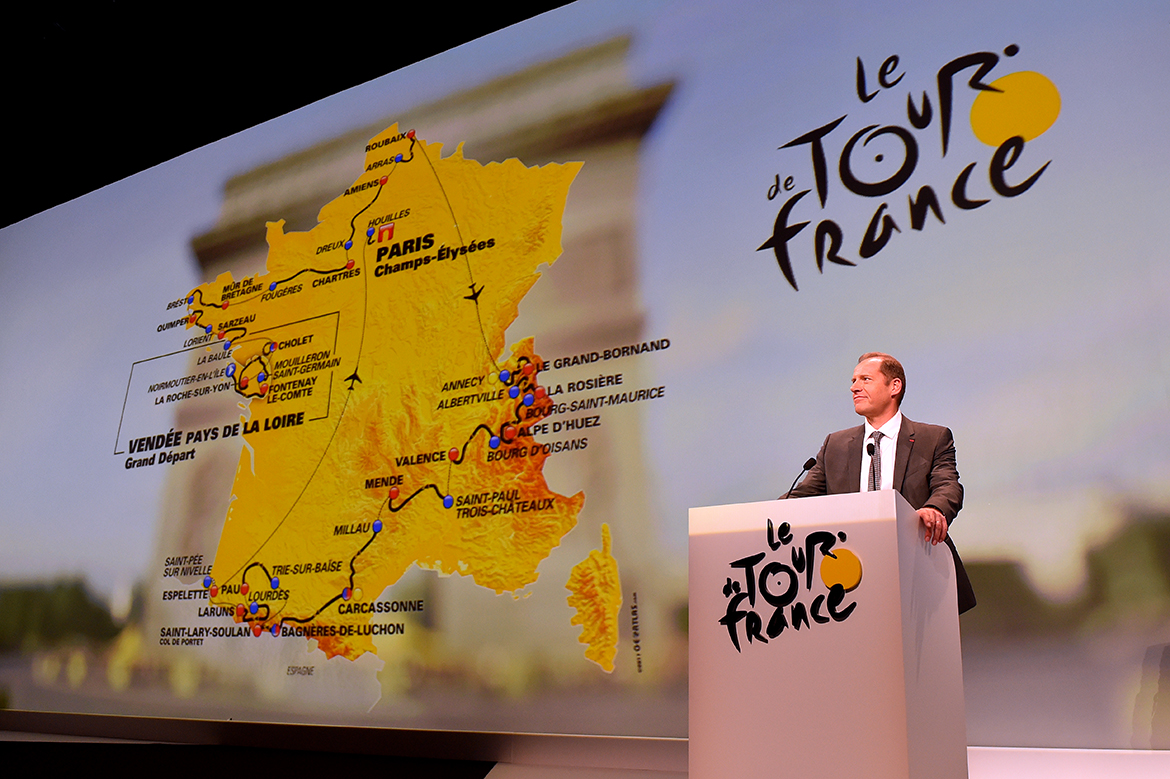
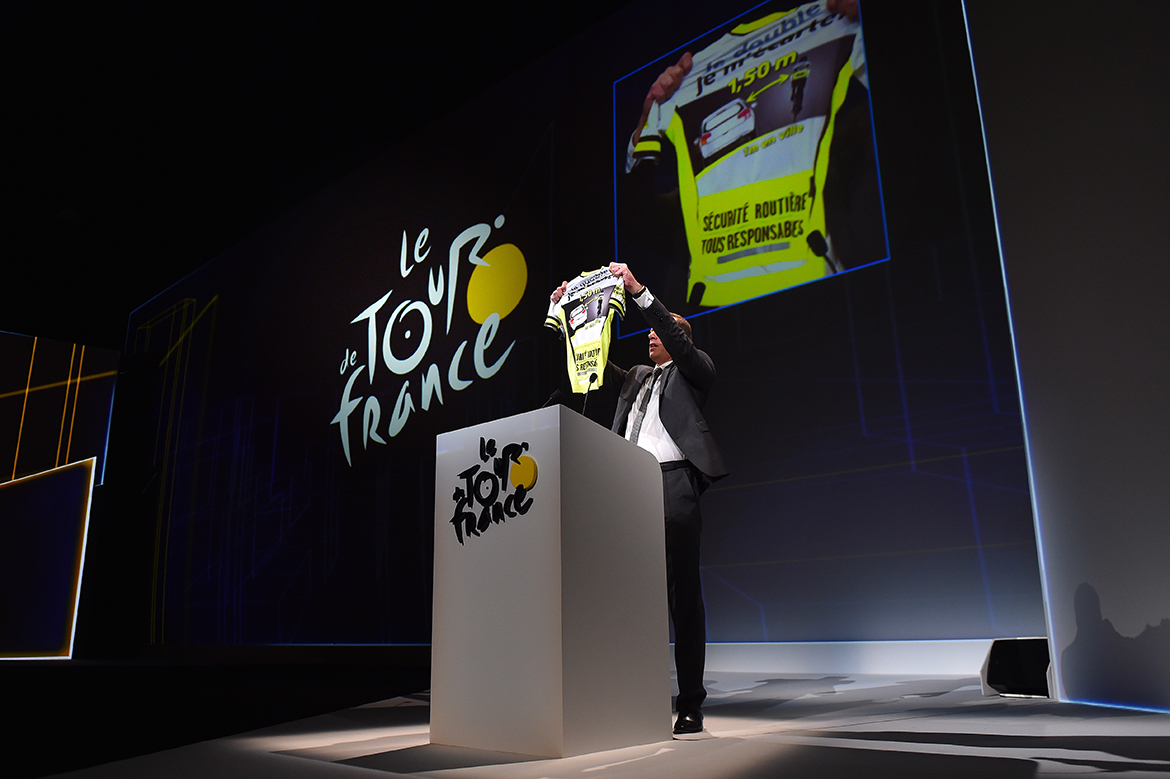
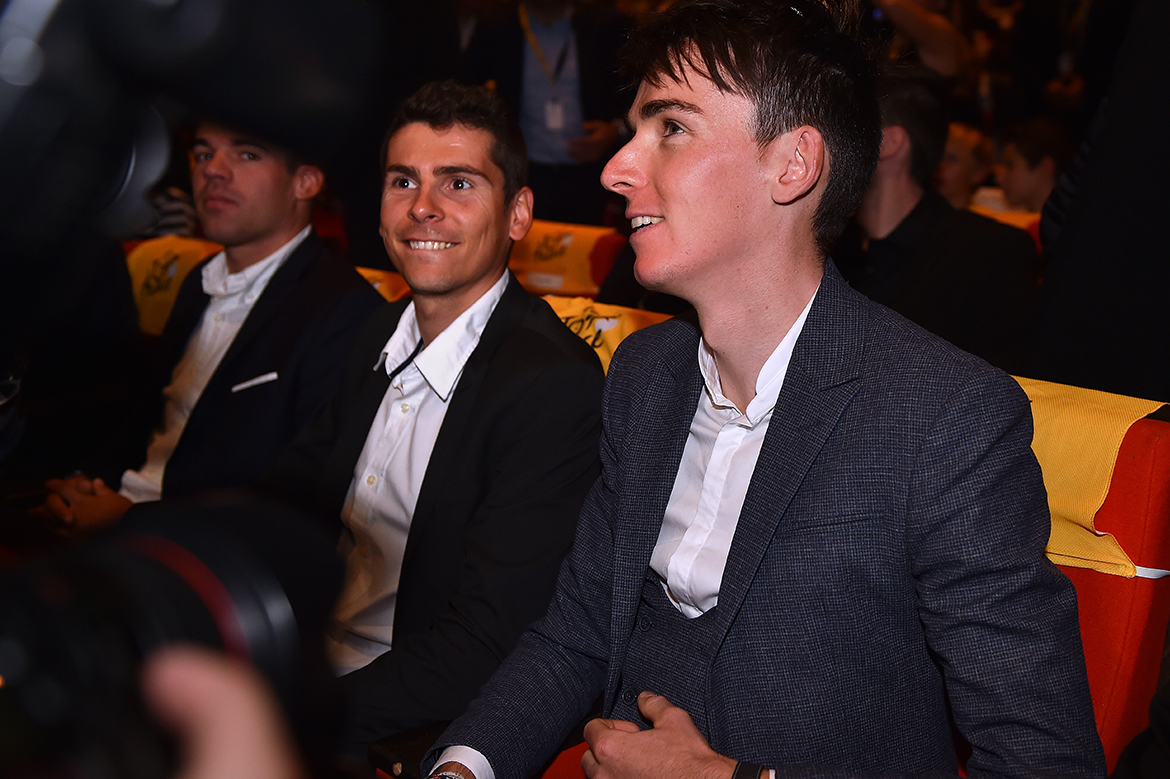
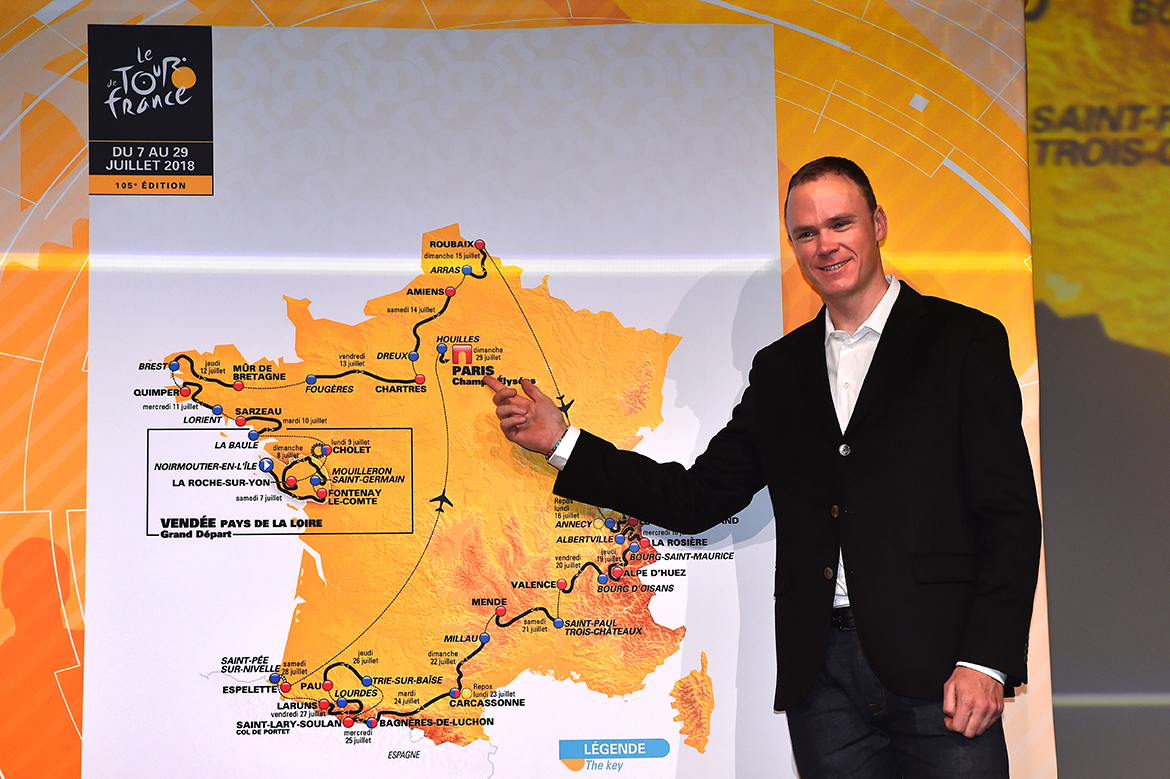

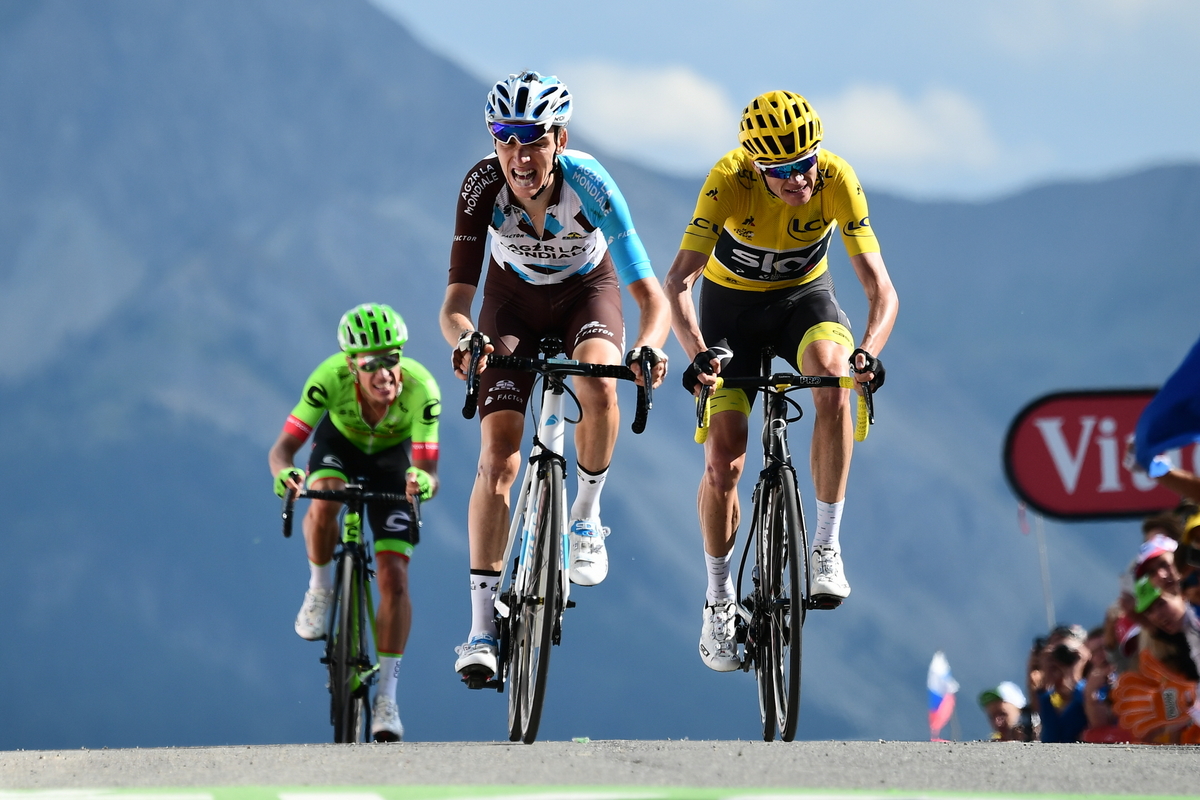
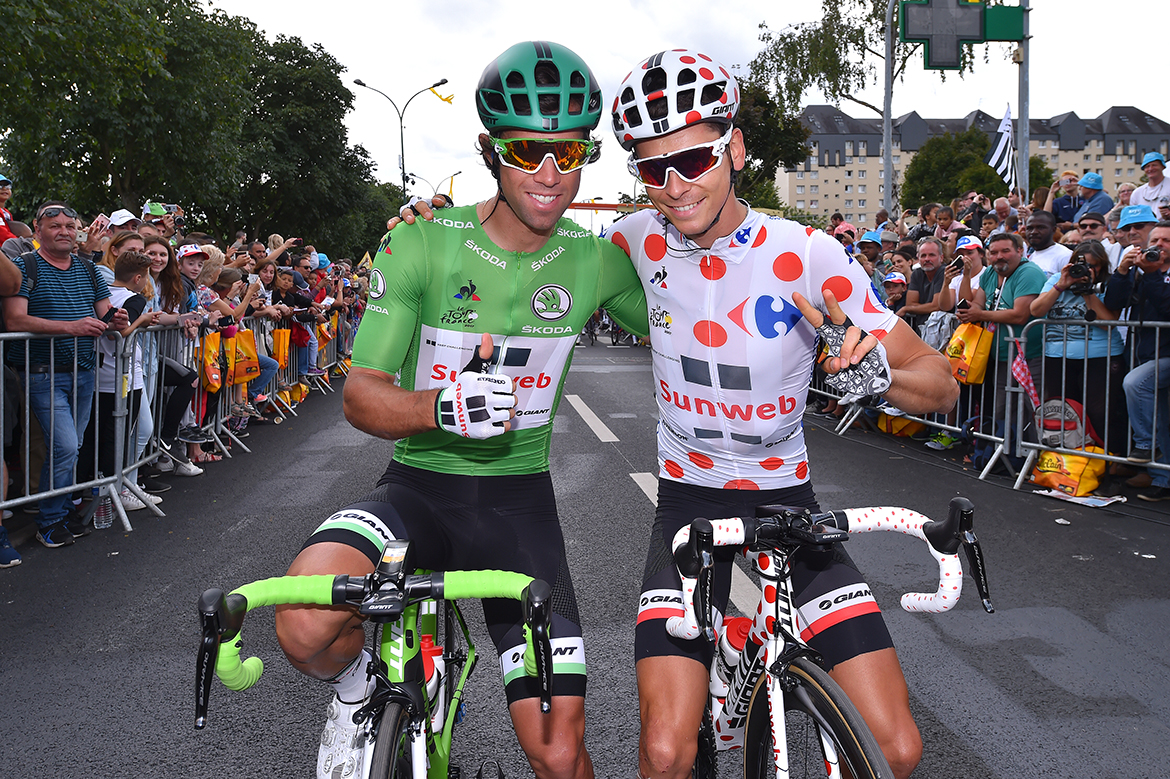
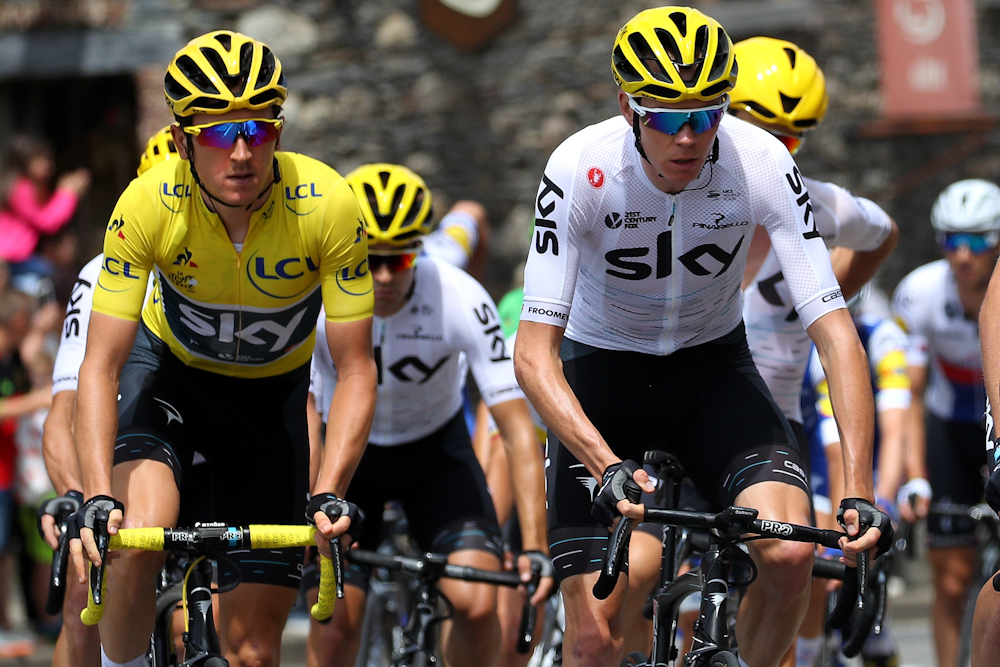
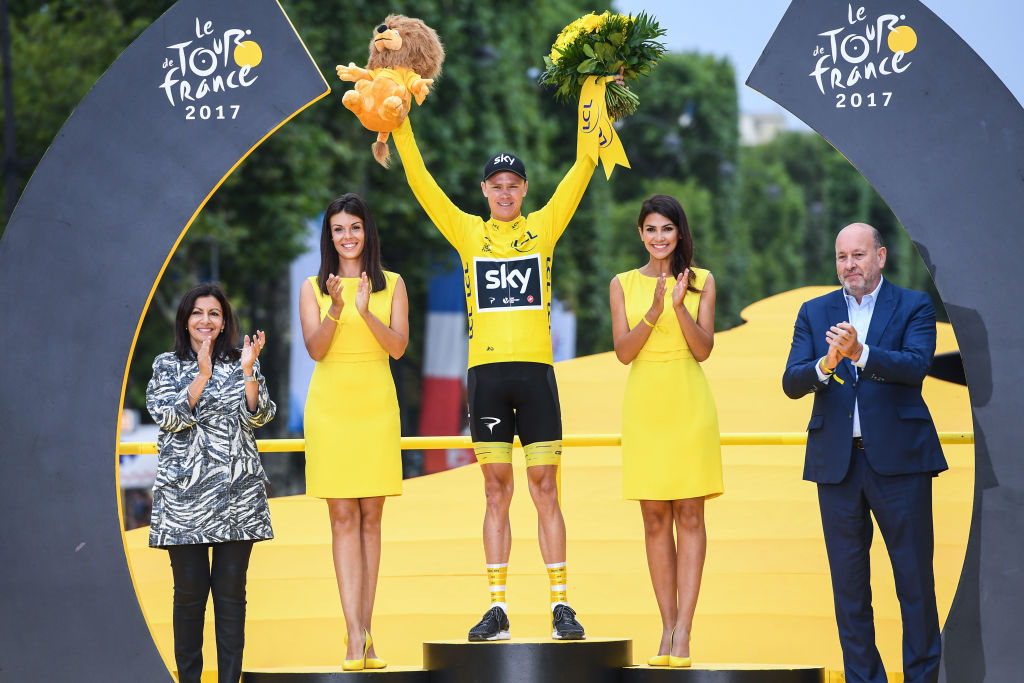
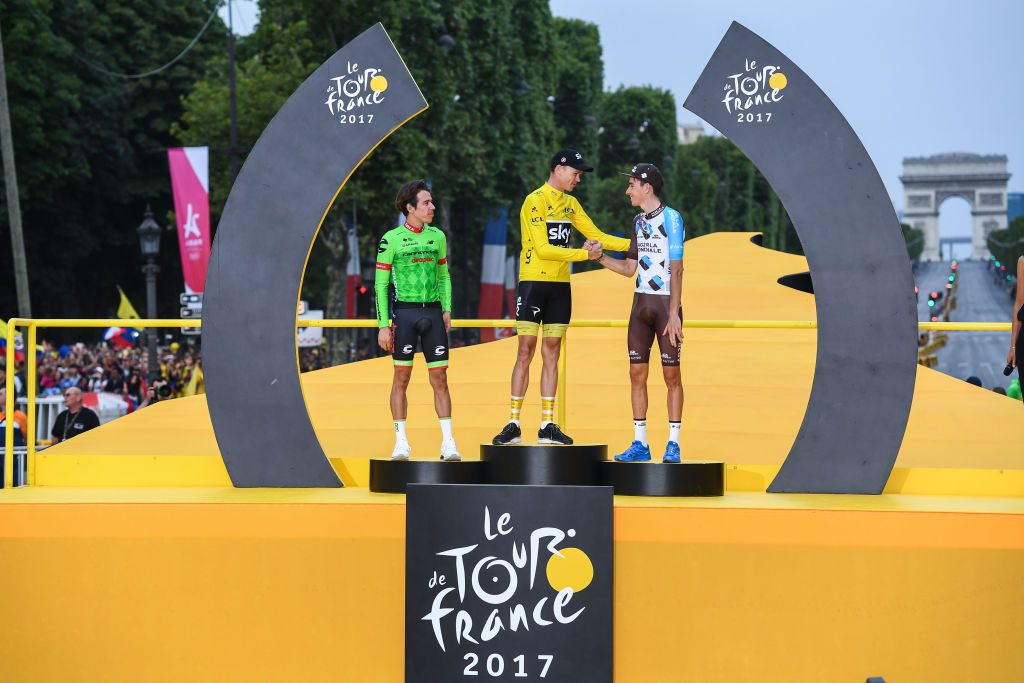
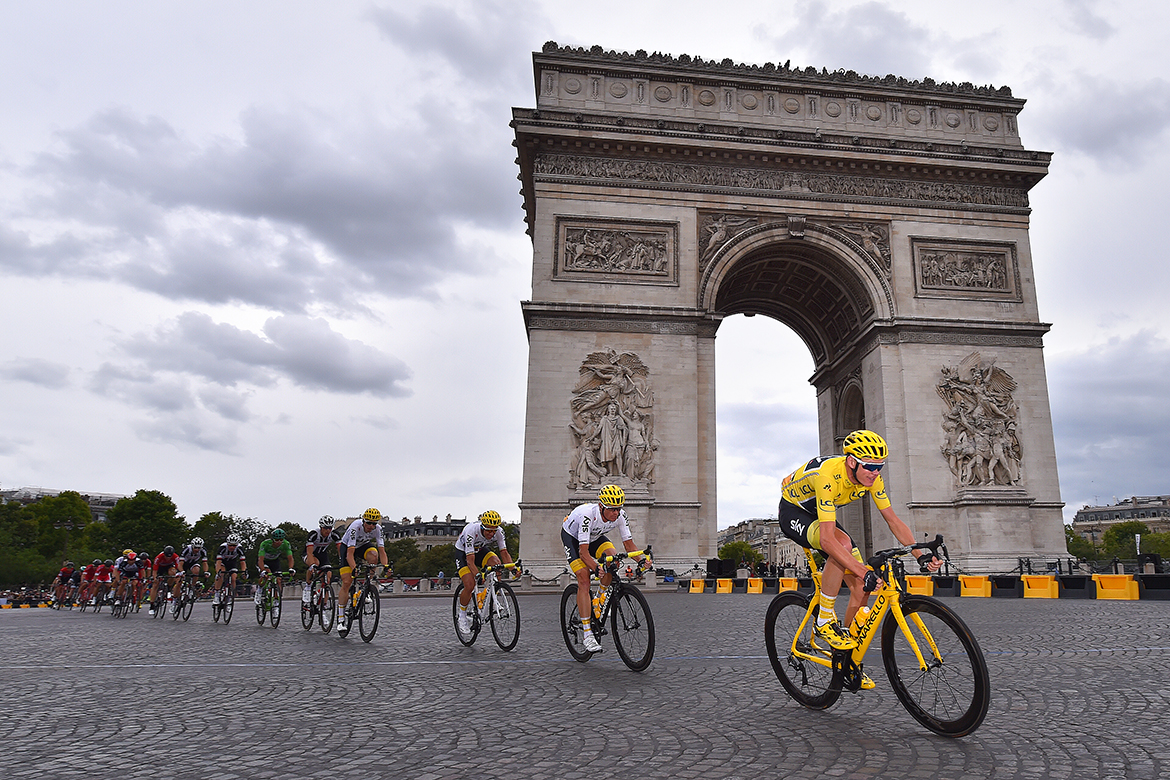
The route of the 2018 Tour de France has been revealed in Paris, with organiser ASO continuing a blend of tradition and innovation as they look to shake up the racing and seemingly make it harder for Team Sky and Chris Froome to dominate yet again.
Chris Froome: Winning a fifth Tour de France is my priority
Sagan to debut new rainbow jersey at Tour Down Under
Nibali: Froome wouldn't have won his four Tours without Team Sky
Tom Dumoulin: 2018 Tour de France participation depends on the route
Tour de France 2018 route reactions from Froome, Contador and Quintana
Riders gather in Paris for 2018 Tour de France presentation - Gallery
Chris Froome: Tour de France could be torn to pieces in first week
2018 Tour de France route suits me more than this year, says Bardet
Simon Yates hints at Tour de France podium challenge in 2018
2018 Tour de France route in 3D - Video
2018 Tour de France route analysis with Bardet, Yates and Froome - Podcast
The 105th edition of the Tour de France is one of the shortest in recent years with a total distance of 3329km. The 21 days of racing includes a 35km team time trial on stage three, 15 sectors and 21.7km of Paris-Roubaix cobbles on stage 9, a classic finish at L’Alpe d’Huez after three days in the Alps, and then a grand finale of mountain stages in the Pyrenees, before the hilly 31km time trial on the final weekend will decide the winner of the yellow jersey.
Stage 10 – the first mountain stage of the race – includes a section of dirt road on the Plateau des Glières. It is 100km from the finish but comes after a 6km climb at 11 per cent. Stage 17 to the summit of the Col de Portet is only 65km long but half of the stage is uphill. It is the shortest road stage of the 2018 Tour but could be one of the hardest. The sweeping 8.6km haul to the finish at the summit – some 2216 metres above sea level – has been described as a new Tourmalet.
There appears to be fewer opportunities for the sprinters in 2018. Eight stages classified as flat stages, but several of these could be affected by crosswinds and stage 9 includes the cobbles. Extra time bonuses of three, two and one seconds at key points on the road stages up to and including stage 9 could also inspire more aggressive racing. On stage 6 to Mur de Bretagne, the bonus seconds are awarded on the first passage of the steep climb, just 16 km from the finish back at the summit. Under the new UCI rules, the 22 teams will consist of only eight riders.
Race director Christian Prudhomme confirmed ASO’s desire to shake up the racing whenever possible.
“We especially wanted to emphasize stage variety and the routes that may prove decisive, combining legendary climbs with brand new ascensions or ultra-dynamic formats, to provide a vision of modern and inspired cycling,” Prudhomme said.
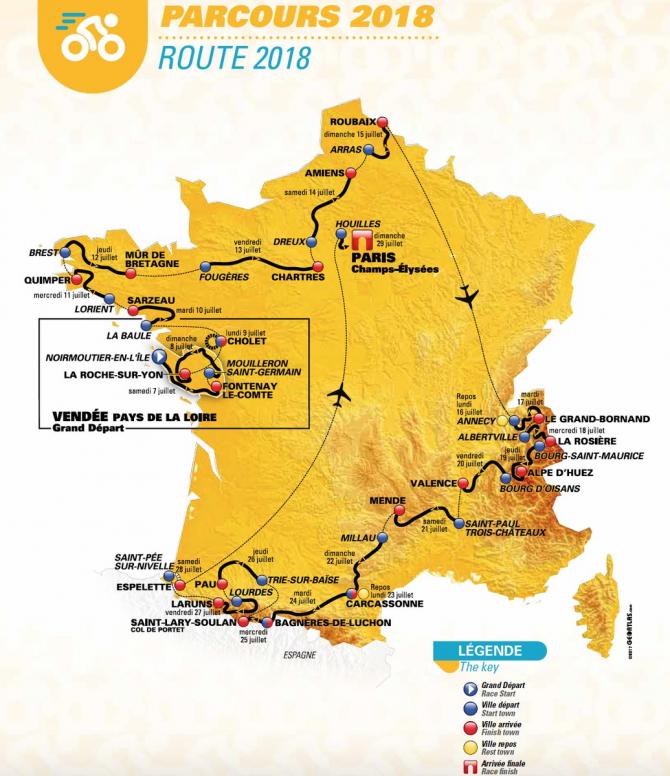
A race of two parts
The 2018 Tour de France starts in the Vendée region on Saturday July 7, a week later than usual due to the 2018 FIFA World Cup in Russia. It ends three weeks later in Paris on Sunday July 29 with the now traditional evening stage and circuits of the Champs-Elysees.
Get The Leadout Newsletter
The latest race content, interviews, features, reviews and expert buying guides, direct to your inbox!
The Etape du Tour sportive ride will be held on July 8, on the route of stage 10 between Annecy and Grand-Bornand, but the women’s event, La Course, was again given little attention by ASO and confirmed as a single day of racing over 118km to Le Grand Bornand on the same day as the men.
The 21 stages are divided into two parts. The first nine stages were described as for the sprinters, rouleurs and baroudeurs, as the race visits the Vendée coast, Brittany and the north of France. The cobbled stage from Arras to Roubaix brings down the curtain of the first part before the transfer to Annecy for the first of two rest days.
Stage 1 from Noirmoutier-en-l’Ile to Fontenay-le-Comte does not include the Passage du Gois but does include 100km along the French coast and twisting lanes before the finish. In 2015 BMC beat Team Sky by a single second to win the team time trial. Any bigger time gaps in the 35km around Cholet in 2018 could seriously affect some riders’ overall chances.
New UCI president David Lappartient will be feted on stage 4 with a finish in his home town of Sarzeau, while Prudhomme described stage 5 to Quimper as a day for the Ardennes Classics riders due the rolling, narrow roads. The stage 6 finish on the Mur de Bretagne will also be spectacular with two climbs of the steep 2km climb in the heart of Brittany. Cadel Evans won here in 2011, while Alexis Vuillermoz used his aggression and climbing skills in 2015. The double climb and the extra time bonuses will only add to the excitement.
The sprinters get their chances in Chartres and Amiens and some may also be up there on the 154km stage 9 to Roubaix, but all eyes will be on how the overall contenders handle the pavé.
Cobbles are nothing new to the Tour de France but riders have never faced such a quantity – 15 sectors and 21.7km on the pave. The stage profile shows that the riders will cover the legendary Mon-en-Pevele, Pont-Thibaut, Templeuve, Cysoing and Camphin-en-Pevele sectors with the finish outside the Roubaix velodrome. A puncture or crash there could end someone chances of overall victory.
The Alps, then the Pyrenees
Stage 10 from Annecy marks the start of the mountains of the 2018 Tour de France, with three important stages in the Alps to Le Grand Bornand, La Rosière-Montvalezan and L’Alpe d’Huez.
The climbing starts straight away on stage 10 with the Montée du Plateau des Glières (6km at 11 per cent) leading up to the two-kilometre section of rough dirt roads across the plateau. The stage will remember the bravery of the French resistance during World War Two. It could see the race explode even with 100km left to race, with the steep Col de Romme and the Col de la Colombiere in the finale.
Stage 11 is short at 108km but is also packed with climbs, while stage 12 has already earned the title of ‘Queen stage’ from Froome because it features close 5,000 metres of total climbing and finishes at L’Alpe d’Huez. There is no new finish above the ski resort or a descent of the Val de Sarenne, but the 175km stage covers the Col de la Madeleine, the spectacular Lacets de Montvernier and the Col de la Croix de Fer before the legendary 21 hairpins up to L’Alpe d’Huez.
The 2018 route avoids the South of France and the Mediterranean coast, crossing to the Pyrenees via a flat stage to Valence, an uphill finish to Mende by way of the new 10 per cent Côte de la Croix Neuve, and a second rest day in Carcassonne.
From the ancient walled town, the riders can see the jagged Pyrenean peaks on the horizon. They face four days of suffering there, with three tough mountain stages divided by a visit to Pau and a chance for the sprinters.
Stage 16 to Bagneres-du-Luchon is 218km long and includes three major climbs in the last 80km. In 2015, Froome attacked alone on the descent of the Col du Portillon, using a tucked pedalling style to distance his rivals and take the yellow jersey.
Stage 17 is one of the shortest road stages of the last 30 years at 65km, but some 38km of the stage are uphill and the finish is atop the Col de Portet (16km at 8.7 per cent). The stage perfectly represents Prudhomme’s desire for shorter stages and as a consequence more intense racing.
Stage 19, after the flat finish in Pau, heads back into the high Pyrenees for 200km of racing. The Col du Tourmalet is a mere warm-up, coming after 108km of racing, with the steps up via the Col des Bordères, the Col du Soulor and the Col d’Aubisque will hurt before the descent to the finish in Laruns. The 2018 Tour de France will be about descending as well as climbing.
The final overall winner will be decided by a 31km time trial on the final Saturday, with the rolling roads between Saint-Pée-sur-Nivelle and Espelette in the French Basque Country also worthy of a stage profile.
Technique and bike skills will be as important as power and aerodynamics. The Côte de Pinodieta comes after 28km and climbs for 900 metres at 10.2 per cent. It is no ordinary time trial but will decide the final overall winner and who gets to ride into Paris in the yellow jersey.
“It is a time trial for puncheurs,” Prudhomme said concluding the route presentation. “We all dream of a spicy finish in Espelette, the world capital of chilli peppers.”
Chris Froome could celebrate his fifth victory in 2018 and join the greats of the sport. However this technical, ever-testing course also suits Tom Dumoulin (Team Sunweb), Richie Porte (BMC) and Vincenzo Nibali (Bahrain-Merida).
The team time trial and the cobbles will be a handicap for Romain Bardet (AG2R-La Mondiale), Thibaut Pinot (FDJ), Simon and Adam Yates (Orica-Scott), and Nairo Quintana (Movistar) but the mountain finishes and steep gradients give them a chance to fight back and stay in the battle for overall victory in Paris.
The 2018 Tour de France stages:
Stage 1, July 7: Noirmoutier-en-l’Ile – Fontenay-le-Comte, 189km
Stage 2, July 8: Mouilleron-Saint-Germain – La Roche-sur-Yon, 183km
Stage 3, July 9: Cholet – Cholet (TTT), 35km
Stage 4, July 10: La Baule – Sarzeau, 192km
Stage 5, July 11: Lorient – Quimper, 203km
Stage 6, July 12: Brest – Mûr de Bretagne Guerlédan, 181km
Stage 7, July 13: Fougères – Chartres, 231km
Stage 8, July 14: Dreux – Amiens Métropole, 181km
Stage 9, July 15: Arras Citadelle – Roubaix, 154km
Rest day, July 16: Annecy
Stage 10, July 17: Annecy – Le Grand Bornand, 159km
Stage 11, July 18: Albertville – La Rosière, 108km
Stage 12, July 19: Bourg-Saint-Maurice Les Arcs – Alpe d’Huez, 175km
Stage 13, July 20: Bourg d’Oisans – Valence, 169km
Stage 14, July 21: Saint-Paul-Trois-Châteaux – Mende, 187km
Stage 15, July 22: Millau – Carcassonne, 181km
Rest day, July 23: Carcassonne
Stage 16, July 24: Carcassonne – Bagnères-de-Luchon, 218km
Stage 17, July 25: Bagnères-de-Luchon – Saint-Lary-Soulan (Col de Portet), 65km
Stage 18, July 26: Trie-sur-Baïse – Pau, 172km
Stage 19, July 27: Lourdes – Laruns, 200km
Stage 20, July 28: Saint-Pée-sur-Nivelle – Espelette (ITT), 31km
Stage 21, July 29: Houilles – Paris Champs Elysées, 115km

Stephen is one of the most experienced member of the Cyclingnews team, having reported on professional cycling since 1994. He has been Head of News at Cyclingnews since 2022, before which he held the position of European editor since 2012 and previously worked for Reuters, Shift Active Media, and CyclingWeekly, among other publications.